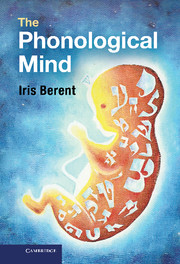Book contents
1 - Genesis
Published online by Cambridge University Press: 05 February 2013
Summary
What does an embryo resemble when it is in the bowels of its mother? Folded writing tablets. Its hands rest on its two temples respectively, its two elbows on its two legs and its two heels against its buttocks . . . A light burns above its head and it looks and sees from one end of the world to the other, as it is said, then his lamp shined above my head, and by His light I walked through darkness (Job XXIX, 3) . . . It is also taught all the Torah from beginning to end, for it is said, And he taught me, and said unto me: “Let thy heart hold fast my words, keep my commandments and live” (Prov. IV, 4) . . . As soon as it sees the light, an angel approaches, slaps it on its mouth and causes it to forget all the Torah completely . . .
(Babylonian Talmud: Tractate Niddah, folio 30b “Niddah,” 1947)Of the various aspects of human nature, the biology of our knowledge systems is an area we struggle to grasp. The possibility that our knowledge might be predetermined by our organic makeup is something we find difficult to accept. This is not because we resist our condition as biological organisms – living breathing bodies whose design is shaped by natural laws and evolution. We rarely give a second thought to our lack of fur or our inability to fly and swim underwater. We are not even disturbed by many obvious shortcomings of our mental faculties – our inability to perceive infrared light, the fallibility of our memory, and the haphazard fleeting character of our attention. Those fickle quirks of our neural machinery are surely inconvenient, but they rarely leave us pondering the confinements of our fate.
Information
- Type
- Chapter
- Information
- The Phonological Mind , pp. 3 - 8Publisher: Cambridge University PressPrint publication year: 2013
